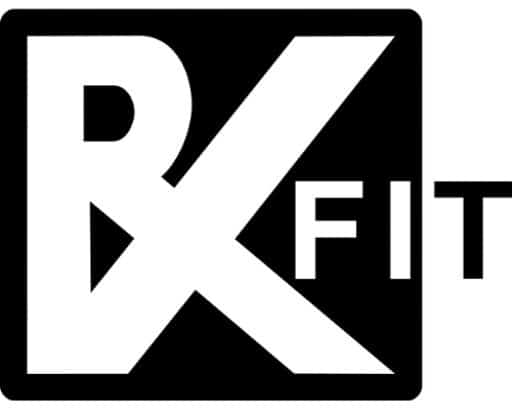Yes, electrolytes are good for you. They are vital for hydration, muscle function, and overall health. This article covers the benefits of electrolytes and potential risks, giving you a clear understanding of why electrolytes are good for you, as well as their importance. Are electrolytes good for you? Let’s explore further.
Key Data
- Hydration and Performance: Losing just 1–2% of body weight in water can reduce strength, speed, energy, and focus during exercise. Electrolytes like sodium and potassium are critical for replenishing fluids lost through sweat, enhancing hydration and performance.
- Approximately 75% of Americans fail to meet daily hydration needs, which can impair physical and cognitive performance.
- Cognitive and Nervous System Support: A 3% decrease in hydration can impair cognitive abilities to the same extent as a blood alcohol level of 0.08%. Electrolytes like sodium and magnesium are essential for nerve communication and brain function.
- Muscle Function: Electrolytes such as potassium and magnesium aid in muscle contraction and relaxation. Research shows that proper electrolyte balance can alleviate muscle cramps caused by strenuous activity or heat exposure.
- Daily Needs: Recommended daily intake varies by mineral: Sodium: 1,500–2,300 mg, Potassium: 3,400 mg for men, 2,600 mg for women, Magnesium: 400–420 mg for men, 310–320 mg for women, Calcium: 1,000–1,200 mg for adults.
- Risks of Overconsumption: Excess sodium can lead to hypernatremia, causing high blood pressure, dehydration, and kidney damage. Symptoms of electrolyte toxicity include nausea, fatigue, muscle cramps, and confusion. Overuse of electrolyte supplements may result in heart rhythm issues or gastrointestinal problems. Those with kidney disease or on certain medications are particularly at risk.
- Electrolyte Deficiency Disorders: Common in older adults or those with conditions like kidney disease or eating disorders. Severe imbalances can cause cardiac arrest or seizures if untreated.
What Are Electrolytes and Why They Matter
Electrolytes are minerals carrying an electrical charge, crucial for balancing bodily functions and maintaining fluid levels. These include sodium, potassium, magnesium, calcium, and chloride. Each plays a vital role in muscle contraction, nerve function, and fluid regulation.
Electrolytes are crucial for maintaining hydration status, noting that an imbalance in sodium and potassium can significantly affect hydration levels.
Imagine electrolytes as the unsung heroes working behind the scenes to keep your body running smoothly. Without enough electrolytes, our body would struggle to perform even the most basic tasks, leading to a range of health issues.
How Electrolytes Support Bodily Functions
Electrolytes are charged substances that, when dissolved in water, regulate chemical reactions and maintain fluid balance in your body. They conduct electricity, enabling muscle contractions necessary for movement and physical activity.
Even a water loss of just 1-2% of body weight can negatively impact strength, speed, and focus, emphasizing the importance of maintaining hydration levels.
Electrolytes are also critical for nerve function, transmitting electrical impulses that allow us to feel, move, and react. Whether lifting weights or walking to the store, nerves rely on electrolytes to function properly.
Electrolytes also maintain hydration by regulating fluid in and around cells, ensuring proper hydration. This balance is vital for metabolic processes and overall health.

Benefits of Maintaining Proper Electrolyte Levels
Proper electrolyte levels enhance hydration, muscle function, heart health, and metabolic processes.
Here’s how these benefits manifest in specific areas of health.
Hydration and Fluid Balance
Electrolytes regulate the body’s hydration levels and fluid balance. They ensure the right amount of fluid is present inside and outside of cells, crucial for hydration and overall health. While water suffices for low-intensity activities under 75 minutes, electrolyte drinks benefit more intense or prolonged activities.
Consider the sodium content in electrolyte drinks, as sodium aids fluid retention and overall hydration, especially during and after intense physical activities involving significant sweating.
Muscle Function and Cramping Prevention
Electrolytes are vital for muscle contractions, essential for all physical activity. A lack of electrolytes can lead to muscle cramps, common among athletes. Potassium-rich foods like avocados, bananas, and spinach help prevent cramps by supporting muscle function and nerve signaling.
Other important sources of electrolytes include calcium (milk, yogurt), magnesium (pumpkin seeds, quinoa), and phosphorus (lentils, tofu). Adequate intake of these nutrients helps prevent cramps and ensures optimal muscle function during activities.
Heart Health and Blood Pressure Regulation
Electrolytes maintain a healthy heart rhythm and regulate blood pressure. Stable electrolyte levels ensure steady heart rate and rhythm, vital for cardiovascular health. Sodium, found in foods like dill pickles and table salt, is particularly important for fluid balance and blood pressure regulation.
Adequate electrolyte consumption helps prevent high blood pressure and heart-related issues, making it essential to include electrolyte-rich foods in your diet.

Signs of Electrolyte Imbalance
Electrolyte imbalances manifest in various ways, including:
- Confusion
- Irritability
- Muscle spasms
- Cramps
- Unusual fatigue
- Sudden headaches
- Nausea
- Vomiting
Excessive electrolyte intake can lead to confusion and fatigue, highlighting the need for excess electrolytes balanced intake.
Causes of electrolyte imbalances include dehydration from excessive sweating, vomiting, or diarrhea. Health conditions like kidney disease can also disrupt electrolyte levels, making it crucial to monitor intake and seek medical advice when necessary.
Sources of Electrolytes in Your Diet
Electrolytes are essential minerals needed in our daily diet to maintain bodily functions and overall health. A balanced diet rich in fruits, vegetables, and lean proteins provides the necessary electrolytes. Alternative options for consuming electrolytes include electrolyte powders and sports drinks, as well as healthy beverages like coconut water and fruit juices that naturally provide these minerals.
Carrots, sweet potatoes, lentils, and beans are great sources of potassium. Dried apricots also provide a good amount of this nutrient. Calcium can be found in yogurt, bananas, broccoli, spinach, and sesame seeds. Foods like yellowfin tuna, firm tofu, meat, and lentils are rich in phosphorus, while magnesium is abundant in black beans, lima beans, brown rice, edamame, almonds, pumpkin seeds, and avocados.
When You Might Need Extra Electrolytes
Extra electrolytes might be needed during prolonged physical activity or illness. Profuse sweating from exercise or vomiting and diarrhea can cause significant losing electrolytes and lost electrolytes. During these times, replenishing electrolytes is crucial to maintain balance and prevent dehydration.
Electrolyte drinks for high-intensityexercise often provide higher levels of carbohydrates and sodium for energy and hydration. Electrolyte beverages can be beneficial in this context. Consulting a registered dietitian offers personalized advice on maintaining proper electrolyte balance.

Choosing Electrolyte Supplements and Drinks
Choose electrolyte supplements and drinks with less than 10 grams of added sugar for everyday use. Reviewing the ingredient list helps identify vitamins and potential allergens. High added sugar can hinder recovery, so moderation is key.
Sports drinks restore electrolyte levels after workouts, often containing 250 milligrams or more of sodium per serving. However, a sports drink also provides over 10% of the daily sodium intake, adding unnecessary calories and potentially contributing to obesity, especially in kids.
While sports and electrolyte drinks promise improved performance and faster recovery, they should not be consumed all day. They are best used after exercise or during dehydration to avoid excessive sugar and calorie intake.
Safety Considerations for Electrolyte Intake
While electrolytes are essential, overconsumption, particularly of sodium, can increase the risk of high blood pressure. Excessive intake through sports drinks can lead to health complications. The recommended daily allowance for sodium is 2,300 mg, while potassium is 3,400 mg for adult males and 2,600 mg for adult females.
For those on a low-sodium diet, avoiding electrolyte drinks high in sodium is important to prevent health issues. Moderation and adherence to recommended daily allowances are key to safely maintaining electrolyte balance.
Electrolytes Benefits Wrapped
To sum up, electrolytes are essential for hydration, muscle function, heart health, and many other bodily functions. Maintaining proper electrolyte levels can prevent imbalances that lead to symptoms like confusion, fatigue, and muscle cramps.
By incorporating a variety of electrolyte-rich foods into your diet and using electrolyte supplements and drinks wisely, you can ensure your body gets the essential minerals it needs. Remember, balance is key. Stay hydrated, stay healthy, and keep those electrolytes in check.
For personalized guidance on maintaining optimal electrolyte balance and enhancing your fitness journey, explore RX Fit’s nutrition services.
Frequently Asked Questions
What are electrolytes?
Electrolytes are essential minerals that carry an electrical charge and play a crucial role in balancing bodily functions like muscle contractions and fluid levels. Keeping your electrolyte levels in check is key to staying healthy and energized.
How do I know if I have an electrolyte imbalance?
If you’re feeling confused, fatigued, or experiencing muscle cramps, nausea, or vomiting, you might want to check for an electrolyte imbalance. It’s a good idea to consult a healthcare professional for proper assessment.
What are some good dietary sources of electrolytes?
You’ll find great sources of electrolytes in fruits, vegetables, and lean proteins. Think bananas, spinach, yogurt, and pumpkin seeds to keep your electrolyte levels balanced!
When should I consider taking extra electrolytes?
Consider taking extra electrolytes when engaging in prolonged exercise or if you’re losing fluids through excessive sweating, vomiting, or diarrhea. It’s a smart way to help maintain your body’s balance!
Are there risks associated with consuming too many electrolytes?
Absolutely, consuming too many electrolytes, especially sodium, can raise your blood pressure and cause other health problems. It’s important to keep your intake balanced for overall well-being.
